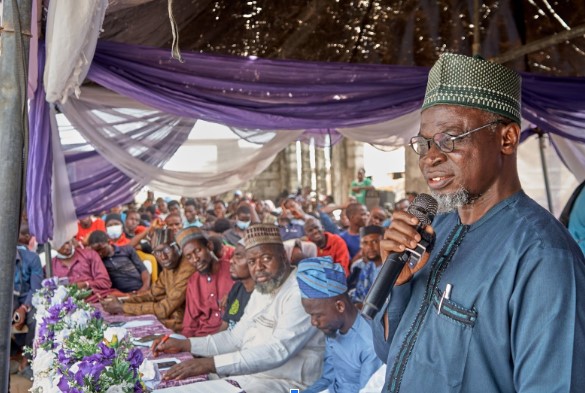
He also expressed fear that some students, parents, and guardians may find it difficult to repay the loan if the economic situation of the country wasn’t improved.
He made this appeal at the closing ceremony of the 113th Islamic Vacation Course organised by the Muslim Students Society of Nigeria, Lagos State Area Unit.
The Federal Government had voted N50bn in the 2024 budget for the implementation of its student loan scheme. This was contained in the details of the 2024 budget appropriation.
Meanwhile, details of how the loan scheme, unveiled by President Bola Tinubu in June 2023, would be implemented remains sketchy.
But the President gave the assurance that the loan scheme would kick off in January.
Tinubu, who spoke at the 29th National Economic Summit in November, insisted that the student loan scheme was a more sustainable model for funding tertiary education and increasing citizen’s access to higher education
“By January 2024, the new student loan programme must commence. To the future of our children and students, we are saying no more strikes. To address long-standing issues in the education sector, a more sustainable model of funding tertiary education will be implemented, including the Student Loan Scheme scheduled to become operational by January 2024.
“Human capital is the most critical resource for national development. Accordingly, the budget prioritises human development with particular attention to children, the foundation of our nation,” Tinubu had said.
But speaking on the theme of the 113th IVC, “The Benchmark” at the Human Capacity Development Centre, Noforija, Epe, Lagos on Sunday, the Yabatech deputy rector acknowledged that student scholarships are laudable, but loans may not be sustainable for students if the scholarship isn’t prioritised.
He said, “When you give somebody a loan, you want him to pay it back, and some students, guardians, or parents are still facing the challenge of poverty, getting them to pay back the loan may be difficult. It’s unfortunate because my generation grew up with subsidised education.
“Those who excel were on scholarship. The average student had their education subsidised. I don’t think getting students to pay back loans is sustainable for the Nigerian education system.
“There’s still poverty and hunger in the land. It’s like we are cutting off some people if we don’t subsidise education which I benefited from in public primary and secondary school.
“I couldn’t send my children to public primary and secondary school because of the falling standard of education, and we want to raise the bar again. Scholarship and bursary are very okay but loan, I don’t think it’s the best way to go.”
While urging the apex government to stick with the United Nations standard on the percentage budgetary allocation to education, Dr Badmus added that “the government must not be shying away from it. Those who excel and those we see as our mentors are strictly following this”.
According to him, there’s no shortcut to getting educated and the government should fund education.
He said, “It is freely funded elsewhere, and we are running to them. At least let the government get close to that benchmark of the UN budgetary allocation to education.
“That’s the best way to go. You cannot have peace when your neighbours are not at peace. When your neighbours are hungry, you cannot sleep well,” he added.
In his address, the Amir (President), MSSN Lagos, Kamoldeen Abiona, noted that during the programme, members of the organisation were trained to be upright morally and academically.
“The IVC provided them an opportunity to strengthen their faith, build meaningful relationships, and develop valuable skills that will serve them in their academic, personal, and professional lives,” he said.













